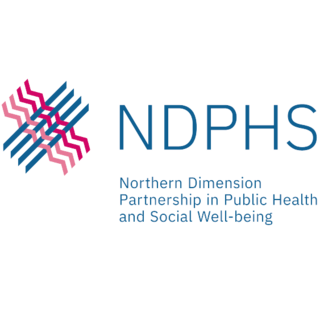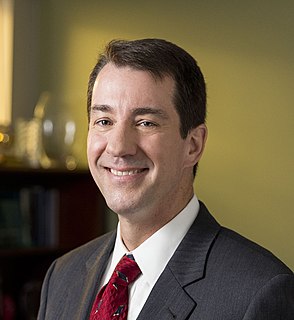Related Research Articles
A rare disease is any disease that affects a small percentage of the population. In some parts of the world, an orphan disease is a rare disease whose rarity means there is a lack of a market large enough to gain support and resources for discovering treatments for it, except by the government granting economically advantageous conditions to creating and selling such treatments. Orphan drugs are ones so created or sold.
An orphan drug is a pharmaceutical agent developed to treat medical conditions which, because they are so rare, would not be profitable to produce without government assistance. The conditions are referred to as orphan diseases.
The National Institute of Arthritis and Musculoskeletal and Skin Diseases (NIAMS) is one of the institutes and centers that make up the National Institutes of Health, an agency of the United States Department of Health and Human Services (HHS).
Emergency is a humanitarian NGO that provides free medical treatment to the victims of war, poverty and landmines. It was founded in 1994. Gino Strada, one of the organisation's co-founders, served as EMERGENCY's Executive Director. It operates on the premise that access to high-quality healthcare is a fundamental human right.

The European Centre for Disease Prevention and Control (ECDC) is an agency of the European Union (EU) whose mission is to strengthen Europe's defences against infectious diseases. It covers a wide spectrum of activities, such as: surveillance, epidemic intelligence, response, scientific advice, microbiology, preparedness, public health training, international relations, health communication, and the scientific journal Eurosurveillance.
A patient safety organization (PSO) is a group, institution, or association that improves medical care by reducing medical errors. Common functions of patient safety organizations are data collection and analysis, reporting, education, funding, and advocacy.

The European Institute for Health Records or EuroRec Institute is a non-profit organization founded in 2002 as part of the ProRec initiative. On 13 May 2003, the institute was established as a non-profit organization under French law. Current President of EuroRec is Prof. Dipak Kalra. The institute is involved in the promotion of high quality Electronic Health Record systems in the European Union. One of the main missions of the institute is to support, as the European authorised certification body, EHRs certification development, testing and assessment by defining functional and other criteria.
The International Network of Health Promoting Hospitals and Health Services (HPH) is a nonprofit, non-governmental organization that was initiated by the World Health Organization (WHO) in 1988. It is also known simply as HPH, or "Health Promoting Hospitals." HPH is based on the settings approach to health promotion philosophy of the WHO as outlined in the WHO Ottawa Charter for Health Promotion. The organization's main aim is to improve the health gain of hospitals and health services by a bundle of strategies targeting patients, staff, and the community.
Orphanet is a European website providing information about rare diseases as well as corresponding diagnosis, orphan drugs, clinical trials and expert networks

Walter Ian Lipkin is the John Snow Professor of Epidemiology at the Mailman School of Public Health at Columbia University and a professor of Neurology and Pathology at the College of Physicians and Surgeons at Columbia University. He is also director of the Center for Infection and Immunity, an academic laboratory for microbe hunting in acute and chronic diseases. Lipkin is internationally recognized for his work with West Nile virus, SARS and COVID-19.

The European Organisation for Rare Diseases (EURORDIS) is a non-governmental patient-driven alliance of patient organizations and individuals active in the field of rare diseases, that promotes research on rare diseases and commercial development of orphan drugs. EURORDIS is dedicated to improving the quality of life of all people living with rare diseases in Europe. It was founded in 1997; it is supported by its members and by the French Muscular Dystrophy Association (AFM), the European Commission, corporate foundations and the health industry.

The European Brain Council (EBC) is a coordinating international health organization founded in 2002.

The Northern Dimension Partnership in Public Health and Social Well-being (NDPHS) is a transnational networking platform for strengthening professional connections, sharing and co-creating knowledge, and developing joint activities in public health and social well-being.

The National Center for Advancing Translational Sciences (NCATS) was established in 2012 and is located in Bethesda, Maryland. NCATS is one of 27 institutes and centers of the US National Institutes of Health (NIH), an agency of the US Department of Health and Human Services. The mission of NCATS is to transform scientific discoveries into new treatments and cures for disease that can be delivered faster to patients. The budget provided to NCATS for fiscal year 2018 is $557,373,000.
The European Health Management Association (EHMA) was established in 1982 and is a non-profit membership organisation. Its focus is on health management capacity and capabilities and on supporting the implementation of health policy and practice.

Marshall L. Summar is a physician, clinical geneticist and academic specializing in the field of genetics and rare disease.
The European Society for Phenylketonuria and Allied Disorders Treated as Phenylketonuria (E.S.PKU) is a Europe-based non-profit organization. It was founded in 1987 by patient-driven associations to help improve the treatment of phenylketonuria (PKU) in Europe.

The European Centre of Excellence for Civilian Crisis Management e.V. (CoE) is based in Berlin. Its task is to enhance civilian crisis management within the framework of the EU Common Security and Defence Policy (CSDP). It is a service provider for its 21 members, the European External Action Service (EEAS) as well as civilian crisis management missions. Currently it has a staff of 16, among them seconded experts from Finland, Italy, Lithuania, the Netherlands and Sweden.
References
- 1 2 "2013 EURORDIS Policy factsheet" (PDF). Eurordis. Retrieved 2020-11-04.
{{cite web}}: CS1 maint: url-status (link) - ↑ "Centres of Excellence for Rare Diseases (2013)". Rare Disease UK. 2013-02-28. Archived from the original on 2021-01-15. Retrieved 2020-11-24.
- ↑ "NIH Centers of Excellence, Rare Diseases Clinical Research Network Overview" (PDF). National Institute of Health reports. Retrieved 2020-11-14.
{{cite web}}: CS1 maint: url-status (link) - ↑ Taruscio, Domenica; Gentile, Amalia E.; Evangelista, Teresinha; Frazzica, Rosa G.; Bushby, Kate; Montserrat, Antoni Moliner (April 2014). "Centres of Expertise and European Reference Networks: key issues in the field of rare diseases. The EUCERD Recommendations". Blood Transfusion. 12 (Suppl 3): s621–s625. doi:10.2450/2014.0026-14s. ISSN 1723-2007. PMC 4044812 . PMID 24922304.
- ↑ "COUNCIL RECOMMENDATION of 8 June 2009 on an action in the field of rare diseases". Official Journal of the European Union– via eur-lex.europa.eu.
- ↑ "Working with the WHO". Rare Diseases International. Retrieved 2020-11-24.
- ↑ "An Agreement with the WHO". Rare Diseases International. 2019-12-16. Retrieved 2020-11-24.
- ↑ "TrueMed-Rare Disease Company". Sunday, 8 May 2022
- ↑ "Orphanet: Expert centres". www.orpha.net. Retrieved 2021-02-05.